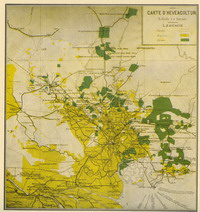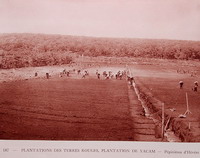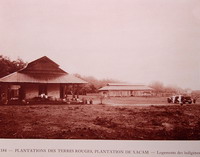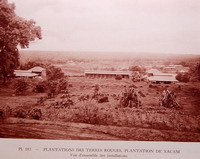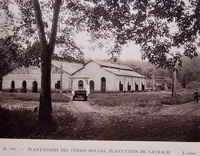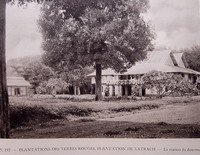Quan Loi Terres Rouges Rubber Plantation Circa
1931
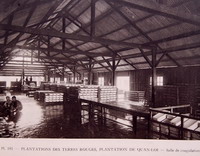 |
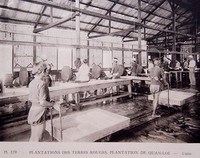 |
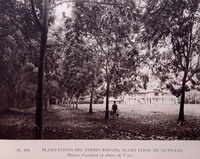 |
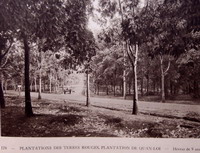 |
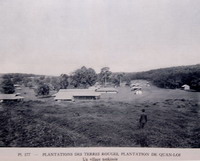 |
(Click Photo to Enlarge)
Photos and map courtesy and used with the permission of François Denis
FIEVEZ
http://belleindochine.free.fr/Caoutchouc.htm
Map of French Rubber Plantations - 1931
Francois has a terrific site covering his interests in Southeast Asia. The site, however, is naturally in French which many of us do not speak or read. I therefore, decided to use Google MachineTranslation to access the site in English which was of great help, but the translation seemed to be so stilted that I decided to "enhance" the translation with some phrase correction, etc., in order to make it easier to read. We'll let you be the judge.
In all fairness to Francois, I did not want to burden his site with new traffic without proper credit for all of his diligent work. He had generously granted permission to use any of the photos on his site, so, rather than compete with his work, I decided to put up a "mirror image" of his history of French rubber plantations pages. Below you will find three links to access his pages. The first is his original French History of Rubber Plantation site. The second are the Google English translation pages as well as an link to his index page and lastly my enhanced English translation "mirror" pages. Whichever way you decide, I urge you to explore his website if you have an interest in Southeast Asia. Thank you Francois for sharing your pages.
Francois' original French language site: http://belleindochine.free.fr/Caoutchouc.htm
Google English Translation History of French Rubber Plantations: Click Here (Be patient as Google has to translate the site the first time for you and may take a few seconds - minutes. Link to English Translation of site index
Enhanced Translation "Mirror Image" Pages Click Here Be sure to try this one!
Photos and map courtesy and used with the permission of François Denis
FIEVEZ
http://belleindochine.free.fr/Caoutchouc.htm
All content and photos on this site are the property of their named owners and may not be copied or used for any other purposes without permission. (Please contact webmaster at address listed below for permission)
This website was
produced and is owned by John A. Wavra
Copyright © 2001-2007 by John A. Wavra. All rights reserved.
Revised: 01/05/07 13:55:46 -0600.
abattery6-27tharty@quanloi.org
![]()
